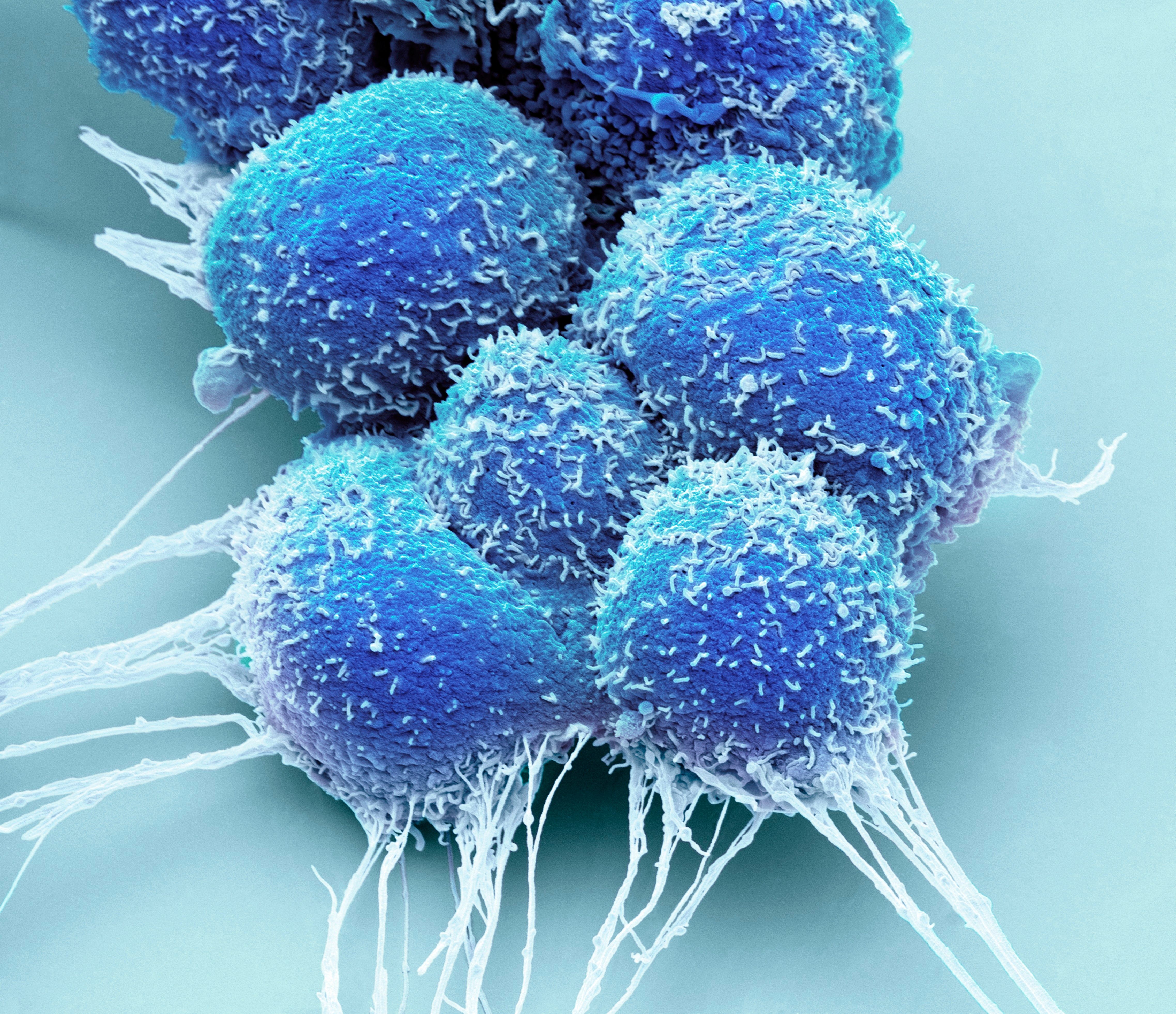Belzutifan/Lenvatinib Combination Shows Auspicious Signals in RCC
Positive results have been reported from phase 1/2 KEYMAKER-U03B study, and belzutifan plus lenvatinib is being further investigated in the phase 3 LITESPARK-011 study (NCT04586231).
Image Credit: © Science RF - www.stock.adobe.com

Treatment with belzutifan (Welireg) and lenvatinib (Lenvima) in patients with advanced clear cell renal cell carcinoma who progressed following a PD-1/L1 inhibitor and a VEGF tyrosine kinase inhibitor (TKI) showed encouraging clinical activity and manageable toxicity.1
Results come from arm B5 of the phase 1/2 KEYMAKER-U03B study (NCT04626518), which were presented at the 2023 ASCO Annual Meeting. The results showed that at a median follow-up of 6.9 months, a regimen combining the HIF-2α inhibitor belzutifan and the VEGF-TKI lenvatinib elicited an objective response rate (ORR) of 50% (95% CI, 29-71) among 24 patients who had received at least 2 postbaseline scans. All of the responses were partial responses.
The clinical benefit rate (ORR + stable disease ≥6 months) was 54% and the median duration of response was not reached (range, 1.4+ to 14.0+ months). Nearly three-fourths (74%) of responders remained in response for 12 months or longer. One patient had progressive disease.
Among all enrolled patients, the median progression-free survival (PFS) was 11.2 months (95% CI, 4.2 to not reached) and the 6-months PFS rate was 55%.
“Preliminary results…from arm B5 of KEYMAKER-U03B showed promising antitumor activity with belzutifan plus lenvatinib in patients with ccRCC that progressed on PD-1/L1 inhibitors and VEGF-TKIs, a population that has limited efficacious treatment options,” said first study author Laurence Albiges, MD, PhD, Institut Gustave Roussy, Villejuif, France.
Overall, the multicenter, multi-arm, open-label, adaptive, phase 1/2 KEYMAKER-U03B umbrella study is exploring various treatment combinations in patients with heavily pretreated ccRCC who have progressed after receiving a PD-1/L1 inhibitor and a VEGF-TKI, either in combination or sequentially.2 As of the cutoff date of September 29, 2022, 32 patients had been enrolled in arm B5, 30 had been treated, and 23 remained on treatment.
The median patient age was 60.5 years, 78% of patients were male, and 78% of patients had intermediate/poor IMDC risk disease. The ECOG performance status was 0 for 17 patients and 1 for 15 patients. Seventy-eight percent of patients had prior nephrectomy.
Patients in arm B5 were treated with belzutifan at 120 mg orally each day and lenvatinib at 20 mg orally each day. Patients received a median of 3.5 treatment cycles (range, 1.0-13.0)
There were no new safety signals compared with the safety profiles of belzutifan and lenvatinib reported in previous research.In the safety lead-in phase of the trial, only 1 of 10 evaluable patients had a dose-limiting toxicity, which was dyspnea (grade 1).
In the overall safety analysis, which included all 30 treated patients, 93% (n = 28) of patients experienced at least 1 treatment-related adverse event (TRAE). The TRAEs that occurred in at least 30% of patients were anemia (43%), fatigue (43%), hypertension (43%), proteinuria (33%), diarrhea (33%), nausea (33%), and decreased appetite (30%).
Grade 3/4 TRAEs occurred in half (n = 15) of the patients. The most common grade 3/4 TRAEs were hypertension (27%) and anemia (17%). TRAEs led to 1 patient discontinuing both study drugs, 2 patients discontinuing lenvatinib, and 2 patients discontinuing belzutifan. There were no deaths due to TRAEs.
The combination is being further examined in the phase 3 LITESPARK-011 study (NCT04586231), which is evaluating belzutifan/lenvatinib vs cabozantinib (Cabometyx) in patients with advanced RCC and disease progression after treatment with a PD-1/L1 inhibitor.
REFERENCES:
1. Albiges L, Beckermann K, Miller WH, et al. Belzutifan plus lenvatinib for patients (pts) with advanced clear cell renal cell carcinoma (ccRCC) after progression on a PD-1/L1 and VEGF inhibitor: Preliminary results of arm B5 of the phase 1/2 KEYMAKER-U03B study. J Clin Oncol. 41, 2023 (suppl 16; abstr 4553) doi: 10.1200/JCO.2023.41.16_suppl.4553
2. NIH ClinicalTrials.gov. Substudy 03B: A Study of Immune and Targeted Combination Therapies in Participants With Second Line Plus (2L+) Renal Cell Carcinoma (MK-3475-03B). Last updated May 18, 2023. Accessed June 2, 2023. https://clinicaltrials.gov/ct2/show/NCT04626518
Enhancing Precision in Immunotherapy: CD8 PET-Avidity in RCC
March 1st 2024In this episode of Emerging Experts, Peter Zang, MD, highlights research on baseline CD8 lymph node avidity with 89-Zr-crefmirlimab for the treatment of patients with metastatic renal cell carcinoma and response to immunotherapy.
Listen
Beyond the First-Line: Economides on Advancing Therapies in RCC
February 1st 2024In our 4th episode of Emerging Experts, Minas P. Economides, MD, unveils the challenges and opportunities for renal cell carcinoma treatment, focusing on the lack of therapies available in the second-line setting.
Listen
Peers Discuss Management of IO/TKI Toxicities and Dosing Strategies in Frontline RCC
March 11th 2025During a Case-Based Roundtable® event, Elizabeth M. Wulff-Burchfield, MD, and other participants discussed their experiences with the frontline combination regimens for advanced renal cell carcinoma.
Read More